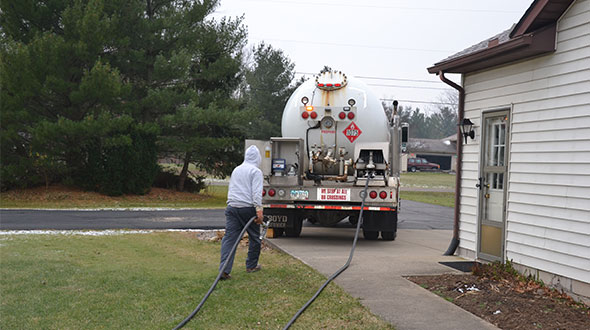Effective Risk Management in Propane Delivery
Risk management is crucial in propane delivery to ensure safety, compliance, and efficiency. This article explores critical strategies for effectively managing risks in propane delivery operations, enhancing safety, and minimizing potential hazards. 1. Safety Training and Education Invest in comprehensive safety training programs for all employees involved in propane delivery. Ensure they are well-versed in… Continue reading Effective Risk Management in Propane Delivery
Risk management is crucial in propane delivery to ensure safety, compliance, and efficiency. This article explores critical strategies for effectively managing risks in propane delivery operations, enhancing safety, and minimizing potential hazards.
1. Safety Training and Education
Invest in comprehensive safety training programs for all employees involved in propane delivery. Ensure they are well-versed in safely handling propane, emergency procedures, and compliance with regulations.
2. Regular Equipment Inspections
To ensure that they remain in optimal condition, regularly inspect and maintain all equipment including tanks, valves, and delivery vehicles. This helps prevent leaks, malfunctions, and other potential hazards.
3. Proper Documentation and Record-Keeping
Maintain accurate records of propane deliveries, inspections, and maintenance activities. This documentation is essential for compliance and can also serve as a valuable resource for promptly identifying and addressing potential risks.
4. Compliance with Regulations
Stay updated with local, state, and federal regulations governing propane delivery. Ensure your operations comply with all safety and environmental standards to avoid fines, penalties, and reputational damage.
5. Emergency Response Planning
Develop and implement comprehensive emergency response plans for propane leaks, fires, and other potential incidents. Conduct regular drills to ensure all employees are prepared to handle emergencies effectively.
6. Use of Technology
Utilize technology, such as GPS tracking and remote monitoring systems, to track propane delivery vehicles and monitor tank levels. This can help optimize routes, improve efficiency, and enhance safety.
7. Customer Communication
Maintain open communication with customers regarding propane delivery schedules, safety guidelines, and emergency procedures. Educate customers on safe propane usage and handling practices to minimize risks.
8. Insurance Coverage
Ensure that your propane delivery business has adequate insurance coverage, including liability insurance, to protect against potential risks and liabilities associated with propane delivery operations.
9. Regular Safety Audits
Conduct regular safety audits of propane delivery operations to identify and address potential risks or hazards. Implement corrective actions promptly to mitigate risks.
10. Continuous Improvement
Review and improve your risk management strategies based on feedback, industry best practices, and emerging technologies. This proactive approach can help you stay ahead of potential risks and ensure the safety and efficiency of your propane delivery operations.

